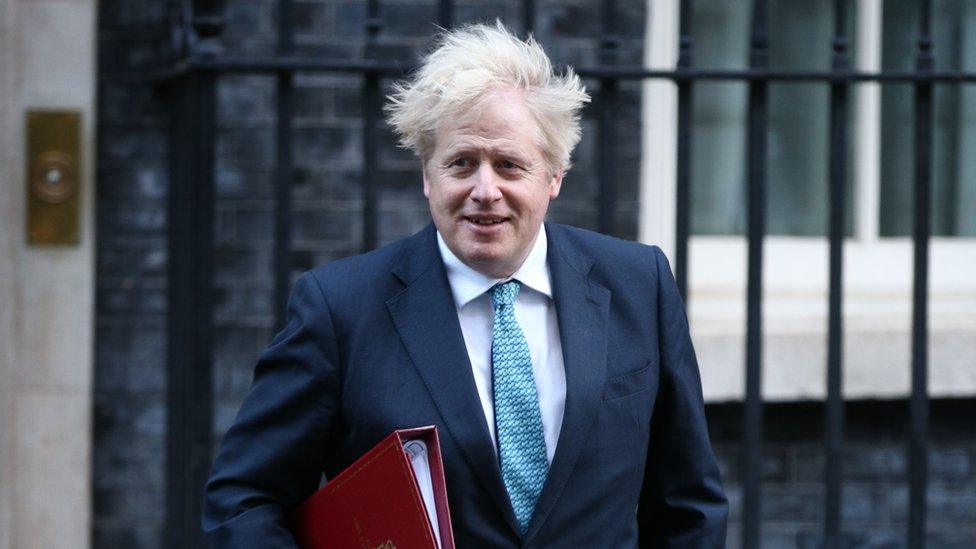Boris Johnson to visit India in bid to boost trade ties
- Published

Boris Johnson will make his first official visit to India in January in a bid to boost trade and investment ties.
No 10 said the trip, the PM's first after the Brexit transition period ends, would also be a chance to discuss co-operation on defence and climate change.
Downing Street is billing it as Mr Johnson's first major bilateral visit since taking office.
International travel has been curtailed during his premiership by Covid-19.
Alongside South Korea and Australia, India has also been invited to join next year's G7 leaders' summit, which will be hosted by the UK.
The UK has said it is hoping to work towards a post-Brexit trade agreement with India after it formally leaves the EU's trading regime at the end of the year.
The two countries have signed partnership agreements in recent years to boost ties in areas including life sciences, IT and the food and drink sectors.
Mr Johnson said the trip, which will be his first to an Asian country as PM, would mark the beginning of "an exciting year for Global Britain".
He added that the visit would help drive a "quantum leap" in the UK's ties with India, which was an "increasingly indispensable partner" and a "key player in the Indo-Pacific region".
As part of the visit, Mr Johnson will take part in the country's annual Republic Day event, which marks the anniversary of India officially adopting its constitution.
'Growth opportunities'
Official confirmation of the PM's trip to India comes as Foreign Secretary Dominic Raab continues a four-day trip to the country this week.
Dominic Raab said the UK has been “sometimes been too myopically-focussed on Europe" while in the EU.
Speaking on Tuesday, Mr Raab told reporters that being able to strike UK-only trade deals was "one of the advantages" of leaving the EU's trading regime.
"I think sometimes we've been too myopically focused just on Europe," he added.
"Certainly if you look at India and the Indo-Pacific region and take a long-term view, that's where the growth opportunities of the future will be."
Related topics
- Published7 November 2016
- Published5 November 2016